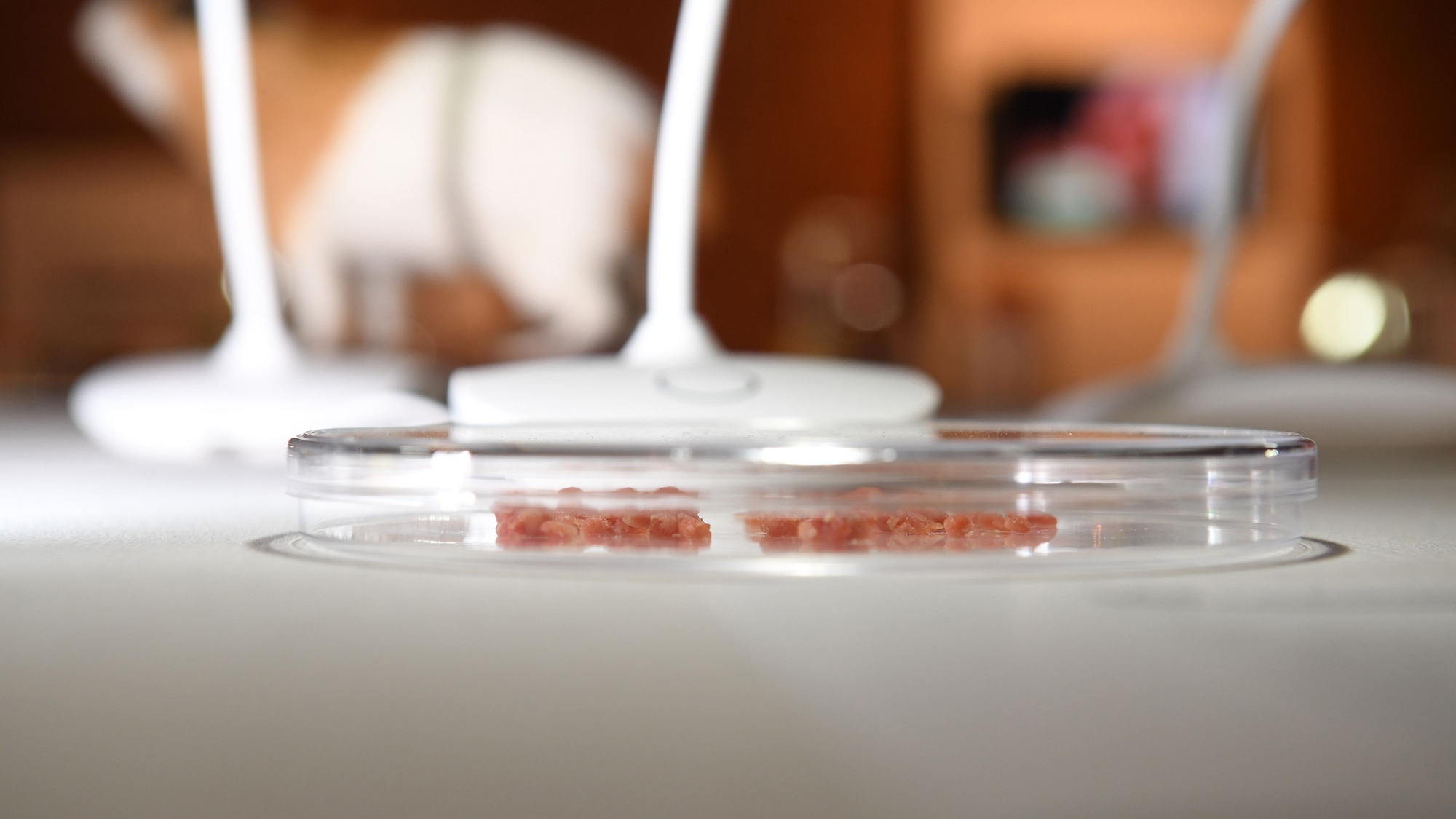

Cultivated meat, more widely known to the public as “lab-grown meat,” is at an inflection point. Lab grown chicken and beef cultivated from cells in a petri dish remain unavailable to the average consumer, but the former has gained US Department of Agriculture approval. Two US restaurants in San Francisco and Washington DC have already served cultivated choice meat on their menus and more could follow as prices begin to fall. But new lab-grown meat bans gaining traction in mostly conservative-led states could threaten to impede the still-nascent industry’s momentum.
This week, Florida officially became the first state to make good on threats to ban cultivated meat. On Tuesday, Governor Ron DeSantis signed into law legislation making it illegal to manufacture, sell, hold, or distribute lab-grown meat within the state. Those who run afoul of the new law could be charged with a misdemeanor crime. Similar legislation is currently under discussion in Alabama, Arizona, and Tennessee. Violators of those bills, if they come to pass, could face jail time or fines.
“Florida is fighting back against the global elite’s plan to force the world to eat meat grown in a petri dish or bugs to achieve their authoritarian goals,” DeSantis said during a press conference Wednesday. “We will save our beef.”
Why do Republican-led states want to ban lab-grown meat?
Republican lawmakers opposed to cultivated meat, broadly, have attempted to connect the industry to a larger supposed culture war. DeSantis, for his part, has previously described lab-grown meat as “part of a whole ideological agenda” and claims it would threaten ranchers. Others, like Florida Department of Agriculture and Consumer Services Commissioner Wilton Simpson, who supports the law, have called lab-grown meat a “disgraceful attempt to undermine our proud traditions and prosperity.”
Lawmakers and cultivated meat critics have also questioned the safety of lab grown meat, though often with arguments lacking evidence. The most common safety-related critics of lab-grown meat revolved around the use of so-called “immortalized” cells in the cultivation process. These specific types of cells are essentially able to duplicate infinitely. That’s useful for cultivated meat startups that want to grow large quantities of meat from a small sample. It can also sound eerily similar to the process of rapid cell reproduction that causes cancer.
Critics of the industry have leaped on that supposed connection and implied eating lab-grown meat could cause cancer. There’s no evidence currently supporting those claims. Food regulators in the US, Australia, and Singapore have determined cultivated meats are safe to eat and cancer researchers speaking with Bloomberg Businessweek last year said it’s “essentially impossible” to get cancer from eating cultivated meat. Still, that hasn’t stopped critics from leaning into that categorization. A recent ad campaign attempting to discredit the industry leaned on the theory and reportedly depicted a student at a science fair claiming the cells in the cultivated meat “grow like a tumor” and are “bath[ed] with chemicals.”
The Republican led backlash to lab grown meat isn’t limited to full on bans either. More than a dozen states have pursued regulations restricting how lab cultivated meat companies brand their product. Some, like Kentucky, Maine, and Mississippi, have advanced regulations that prevent companies from using the word “meat” in their labeling. Others would require cultivated meat companies to provide disclosures on their packaging. On the federal level, Democratic senator Jon Tester and Republican senator Mike Rounds have even introduced legislation seeking to ban cultivated meat from being used in public school lunch and breakfast programs. All of this has occurred despite the fact that lab-grown meat still isn’t commercially available to consumers in the US.
Hasty bans threaten cultivated meat innovation
Lab grown meat supporters say laws like the one recently introduced in Florida could threaten to stymie an nascent industry before it has the chance to reach its full potential. The Good Food Institute, a nonprofit that supports cultivated meat efforts, told PopSci laws like these take choice away from consumers and limit innovation that could lead to new jobs.
“American-made cultivated meat has been rigorously inspected and ruled safe by the USDA and FDA–so why are politicians with no experience in food safety interfering where they don’t belong?” Good Food Institute Legislative Director Pepin Andrew Tuma said. “Floridians should decide for themselves what kind of meat they want to eat, and not be limited by government overreach. The Sunshine State’s eccentric decision casts a long shadow on its laudable ambition to keep the state open for business.”
GOOD Meat, a leading lab-grown meat startup pursuing cultivated chicken, echoed those concerns, and called the law a “setback for everyone.”
“In a state that purportedly prides itself on being a land of freedom and individual liberty, its government is now telling consumers what meat they can or cannot purchase,” GOOD Meat said in a statement posted on X.
There are still more questions than answers surrounding lab-grown meat broadly. Supporters of the industry have said it could make agriculture more sustainable and reduce greenhouse house gas emissions. Recent research, however, suggests it’s too early to tell if that’s true. Others say lab-grown meat could one day offer carnivores an ethical alternative to eating meat that reduces animal suffering. But that supposed future will depend largely on lab-grown meat firms significantly driving down prices and simultaneously improving their product’s taste. Lab grown meat can also require blood drawn from unborn cow fetuses, so it’s not totally immune from ethical scrutiny either. Those barriers are difficult enough on their own to overcome even in the most permissive legal environment. Statewide bans on cultivated meat threaten to make an already difficult dilemma even harder.

